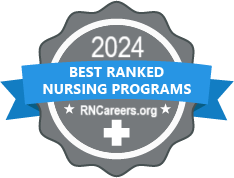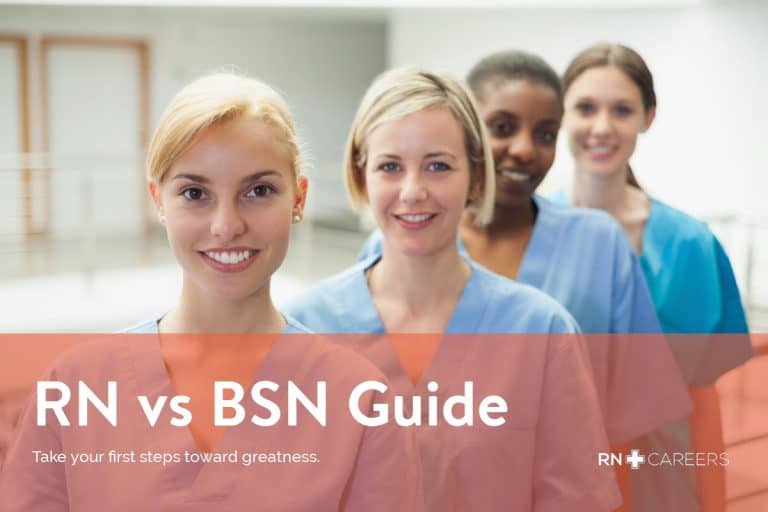Benefits of an MBA for Nurses
Pursuing an MBA as a nurse can open up career opportunities, lead to higher salaries, and provide critical business skills to advance into leadership roles. With the healthcare field growing increasingly complex, nurses with sharp business acumen are in high demand.
Why Nurses Consider Earning an MBA Degree
There are many compelling reasons for nurses to pursue an MBA (Master’s of Business Administration) alongside their clinical nursing experience and education:
- Substantially higher salaries – Registered Nurses (RNs) with an MBA for Nurses earn $15,000 to $20,000 more on average compared to RNs without this advanced business degree according to research from the American Association of Colleges of Nursing.
- Eligibility for senior leadership roles such as Chief Nursing Officer or executive positions
- Understanding of healthcare systems, budgeting, analysis and complex decision-making
- Ability to drive institutional change and improvements as a nurse manager
- Opportunities to transition into non-clinical roles such as consulting or teaching
Additionally, the advanced credentials from an MBA helps nurses stand out when applying for competitive leadership, administrative and management openings within their organizations.
“In the last decade we have seen a profound increase in the frequency of nurses transitioning into leadership roles,” said Dr. Linda Burnes Bolton, chief nursing officer at Cedars-Sinai Medical Center in Los Angeles.
Salary Range for Nurses with an MBA Degree
One of the most compelling reasons for RNs to consider supplementing their nursing degree with an MBA is higher salary potential.
According to the American Association of Colleges of Nursing (AACN), nurses holding an MBA for Nurses earn nearly $20,000 more annually compared to the average RN salary. Some key data points:
- Average annual salary for RNs nationally is ~$75,000
- Average salary for RNs with an MBA is ~$93,000
- Nurse Managers and Directors of Nursing often earn over $100,000 annually
The reason nurses with MBAs command higher salaries is the additional skills they possess in areas like:
- Business strategy – assessing market dynamics and opportunities
- Financial analysis – budget planning, cost controls
- Performance improvement – process excellence initiatives
- Metrics-driven decision making – staffing, capacity planning
These skills allow nurses to operate as strategic leaders who understand the business of healthcare just as well as nursing practice.
Senior nursing roles like Chief Nursing Officer (CNO) often require either an MBA or other relevant Master’s degree. The median pay for top nurse executives and administrators exceeds $117,000 nationwide.
Table 1: Average Salary for Nursing Leadership Roles
| Nursing Leadership Role | Average Salary |
|---|---|
| Chief Nursing Officer | $117,000 |
| Director of Nursing | $111,000 |
| Nurse Manager | $98,000 |
With an aging population and swelling healthcare demands, the Bureau of Labor Statistics projects a higher than average job outlook for medical and health service managers holding masters degrees. Nurses who pursue leadership training and education will be well-positioned for future growth opportunities.
Career Advancement Opportunities
Beyond increased earning potential, the MBA degree primes nurses for advancement opportunities throughout a healthcare service organization. With clinical experience and business credentials, nurses bring a valuable perspective to management discussions concerning quality of care, costs, efficiency and strategy.
Among the advantageous of earning an MBA include:
- Eligibility for Management Roles: Nurse Managers, Division Managers and other mid-level leadership roles often list the MBA as a preferred qualification. Gaining this advanced business training helps position nurses for these critical roles managing teams of other nurses and support staff.
- Chief Nursing Officer Pathway: While the MBA is rarely mandated for nurse executives, it is considered highly valuable in demonstrating business perspective. For nurses aspiring to Chief Nursing Officer and VP ranks within healthcare services, the MBA helps display critical abilities in leadership strategy.
- Interdisciplinary Influence: As nurses take on more organizational leadership responsibilities, they must be able to hold their own discussing financials, operations models and other topics with senior clinical and non-clinical executives.
Joe Golia, DNP and current system CNO for Cleveland-based MetroHealth said the following on nurses augmenting their clinical knowledge with leadership vision from an MBA program:
“The MBA allows you to really understand the business side of the operations,” Golia said. He adds that while the MBA doesn’t necessarily prepare nurse leaders, it allows them to be active participants in high level discussions concerning the direction of the organization.
The business training and credentials from an MBA gives nurses leverage when being considered for advancement into influential roles guiding healthcare strategy.
Bridge Clinical Perspectives and Business Decisions
Earning an MBA not only opens advancement opportunities for nurses and nurse leaders, but arms them to make smarter decisions driving healthcare delivery and operations.
With complex modern challenges such as population health management, quality-based reimbursement models and Electronic Health Record (EHR) optimization, nurses are increasingly called upon to weigh in on major organizational decisions.
Understanding topics like finances, analytics, strategic planning and process improvement allows nurses to offer invaluable frontline clinical perspectives while also factoring the business implications of investments and initiatives.
Some key ways the MBA helps nurses straddle clinical and business leadership domains include:
Budgetary Mastery: Learning budget planning, cost controls and financial analysis gives nurse leaders greater input concerning the spending and investments that impact nursing departments and overall quality of care.
Process Improvements: Training in performance excellence platforms like Lean and Six Sigma through an MBA program equips nurses to pinpoint and lead efficiency gains and workflow enhancements across clinical settings.
Staff Planning and Deployment: Education in metrics, analytics and people management empowers nurse managers to optimize scheduling, staffing ratios and capacity modeling – crucial to balancing productivity and care standards.
As healthcare systems face increasing complexity and change, investing in business education serves clinical nursing professionals well in being positioned to shape better outcomes for both patients and bottom lines.
Diverse Career Trajectories for Nurses With MBAs
While many nurses pursue MBAs specifically to advance into administrative and leadership roles within their healthcare system, the business degree also opens doors to alternative career options that blend nursing expertise with business savvy.
Nurses who earn an MBA can better position themselves for roles such as:
- Healthcare Consultants – Apply clinical insights and business analysis to help hospitals and medical groups optimize processes, technology use, staffing models and other aspects impacting care quality and efficiency.
- Medical Services Development – Combine nursing experience with business acumen gained from the MBA to coordinate, plan and execute the launch or expansion of service lines. Requires both clinical and operational considerations.
- Clinical Informatics – Lead training, process improvement initiatives, data management and analysis to continually elevate standards for nursing documentation and care data leveraged across the organization.
- Health Policy and Advocacy – Influential positions shaping health policies and reforms require both clinical insights and business implications to advocate well-balanced government regulations and payment models.
- Nursing Faculty Roles – Nurse educators who can teach future nursing professionals both clinical care foundations as well as essentials of nursing leadership and healthcare operations are hugely valuable. The MBA lends useful perspectives for molding well-rounded nurses.
- Entrepreneurship – Nursing managers with the business training to recognize promising innovation opportunities and properly quantify viability, costs and potential are well-equipped to strike out on their own in launching healthcare startups.
While the above avenues illustrate just some of the diverse directions an MBA can take nursing careers, at senior levels the advanced business degree certainly optimizes nurses abilities to tackle today’s most pressing healthcare challenges.
Finding the Right MBA Program as a Nurse
Between maintaining their clinical workload and other aspects of work-life balance, the thought of cramming full-time MBA studies on top of their responsibilities may seem daunting for nurses.
However, today’s options for flexible and customized graduate business education make earning an MBA highly achievable even for busy nursing professionals.
Some pointers for nurses for identifying the right MBA program include:
- Define Motivation – First consider what potential nursing career pathways motivate pursuing an MBA before applying to programs. Is the goal to land a nursing leadership role? Branch into healthcare consulting? Strike out as an entrepreneur? Defining this motivation will help determine what MBA focus or specialization serves best.
- Compare Online vs In-Person – Online MBA programs offer optimal flexibility for working nurses, but on-campus programs facilitate valuable in-person networking and connections. Many Feature hybrid options blending online coursework with some campus sessions.
- Look for Specialized Curriculum – Some MBA programs offer customized content, electives or actual Healthcare Administration specializations ideal for nurses looking to complement clinical skills with business knowledge.
- Consider Accelerated Options – To help working nurses earn their MBA efficiently, some graduate business programs feature accelerated course loads, with the tradeoff being an intense curriculum.
Investigating options that align scheduling flexibility, curriculum and other factors with motivations and career goals allows nurses to maximize value from their graduate business education.
Why Earn an MBA Now?
The case for nurses augmenting their clinical training and registering nursing credentials with advanced business education continues to grow stronger across today’s healthcare landscape.
Some key reasons why now is the right time for ambitious nurses to make the investments in their careers and leadership capabilities by earning an MBA include:
- In Demand Skills – Healthcare services need nurses with sharper business acumen and data-driven decision making competency to help solve problems and steer strategy
- Higher Compensation – Nurse salaries are on an upward growth trajectory, especially for those dually trained in nursing practice and leadership principles
- Diverse Opportunities – Clinical staffer burnout has many exploring alternative nursing career options, with business insights better positioning them for non-traditional healthcare roles
- Shape Better Outcomes – Leading hospitals expect nurse managers and executives to understand finance and strategy considerations driving healthcare’s transformation
While some nurses may worry about the demands of piled on work responsibilities and MBA academics, most find the graduate business training energizing. The new knowledge and credentials empower nurses to drive meaningful improvements across whichever healthcare domains they pursue.
Investing in an MBA earlier in a nursing career allows professionals to maximize leadership potential and earnings growth over the long-term. Those seizing opportunities today to expand capabilities also better future-proof their career trajectories for success across the inevitably changing healthcare landscape.
Reasons Why Nurses Should Earn and MBA
The complex challenges confronting healthcare services today demand nurses trained with sharper business acumen and data-backed decision making proficiency from graduate level leadership programs like the MBA.
Nurses who complement clinical experience and nursing specific education with advanced general business knowledge unlock significant opportunities, from moving into executive ranks and administration to exploring emerging new career pathways.
The MBA not only promises nurses improved compensation from higher salaries associated with nursing management and leadership roles. But the graduate degree also equips nurses to tackle pressing issues shaping quality of care and performance across transforming healthcare environments.
Earning an MBA represents a strong career investment for any nurse looking to amplify their impact and contributions to elevating patient outcomes, supporting fellow care providers and steering their healthcare institutions through an age of relentless change.
Summary for Benefits of Earning an MBA for Nurses
- Substantially higher earning potential
- Eligibility for senior leadership roles
- Understanding of complex healthcare operations
- Influence strategic and operational decisions
- Opportunities beyond clinical nursing
- Advancement into management pathways
- Bridging clinical and business perspectives
- Diverse career directions
- Achievable despite busy schedules
- Hone leadership capabilities
Nurses ready to expand their skill sets, amplify their influence over care environments, and bring added value through business insights would be wise to consider integrating an MBA into their career development. Those seizing opportunity today to earn the versatile graduate business degree best position themselves to shape better nurse staffing, patient outcomes and organizational decisions reflecting both care quality and financial sustainability.
FAQ: Benefits of Earning an MBA for Nurses
What can a nurse do with an MBA degree?
An MBA opens up many new career opportunities for nurses, whether they want to move into administrative roles like nurse manager or senior leadership positions like Chief Nursing Officer. It also allows nurses to shift into non-clinical areas like healthcare business, nursing informatics or nursing education.
What are some reasons nurses should consider getting an MBA?
Top reasons nurses pursue an MBA include higher salary potential, landing advanced degrees for promotion eligibility, developing business prowess for management roles, and breaking into the business side of healthcare.
How does an MBA benefit bedside nurses?
Nurses don’t need to pursue nurse administrator or advanced practice roles to benefit from an MBA. It provides insights all nurses can apply to deliver better patient care through financial, operational or strategic lenses.
What kind of career paths does an MBA open up?
With an MBA, nurses can achieve higher titles like Nurse Practitioner, pursue specialties like nursing informatics, shape policy, move into healthcare consulting, or launch an entrepreneurial healthcare business venture.
Can working nurses realistically earn an MBA?
Yes, flexible online and part-time MBA programs make earning this advanced degree achievable for busy nurses. Accelerated options also help nurses fit their MBA into demanding schedules.
Why get your MBA early in your nursing career?
Gaining business insights early allows nurses to maximize leadership potential and salary growth over their career. It also keeps more options open.
How does the MBA help nurses evolve professionally?
The MBA helps nurses speak the language of hospital executives, improving multidisciplinary collaboration. It also equips nurses to tackle pressing issues shaping healthcare’s quality and cost transformation.
What MBA focus is best for aspiring nurse leaders?
Nurses wanting to leverage their MBA for leadership roles should target programs emphasizing healthcare administration, nursing leadership and strategy. Some offer customized healthcare or nursing tracks.

Benefits of Earning an MBA for Nurses
- About the Author
- Latest Posts
After graduating with a degree in English Literature from UCLA, Jeff published four editions of the World Wide Web Yellow Pages by Barnes and Noble, and several editions of the Best of the Web. He’s worked as an executive at both startup and mature companies including CareerPath.com and Microsoft. With nearly three decades of publishing and business development expertise, he now puts that experience to use operating RNCareers.org to help future nursing students get reliable information on registered nursing careers.


![[year] Best BSN Programs In the United States - BSN 4 2024 Best Bsn Programs In The United States – Bsn](https://www.rncareers.org/wp-content/uploads/2020/11/Best-BSN-Nursing-Schools-in-the-United-States.jpg)




